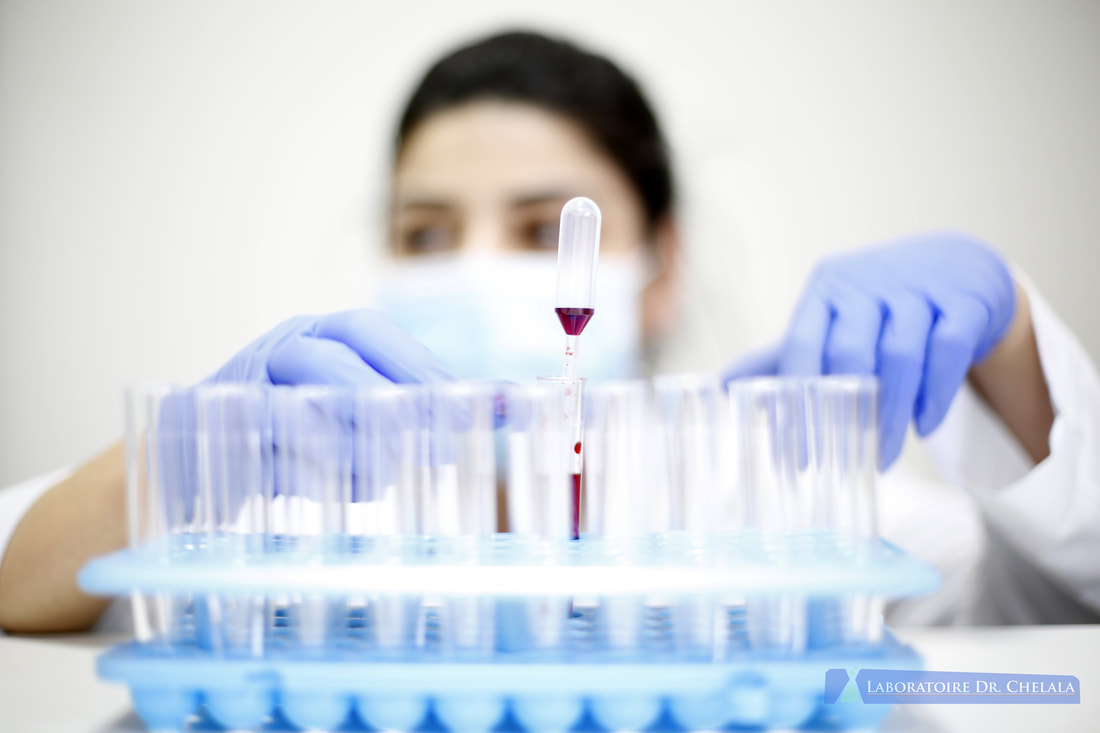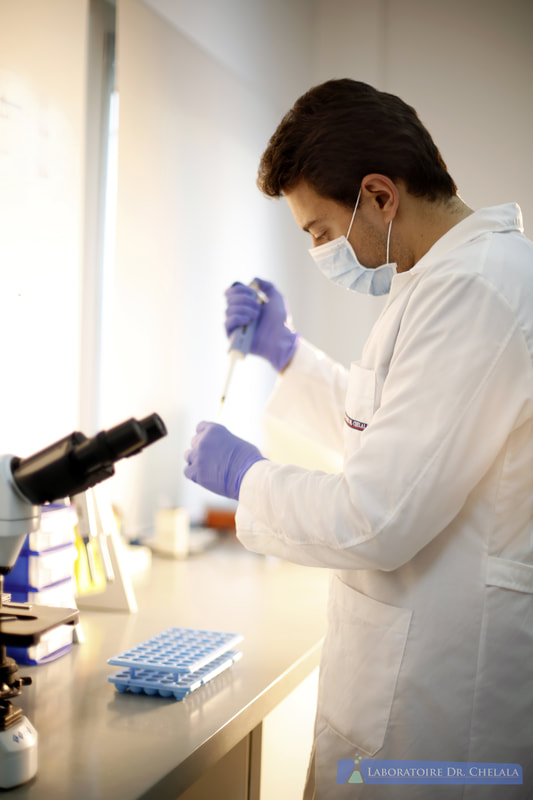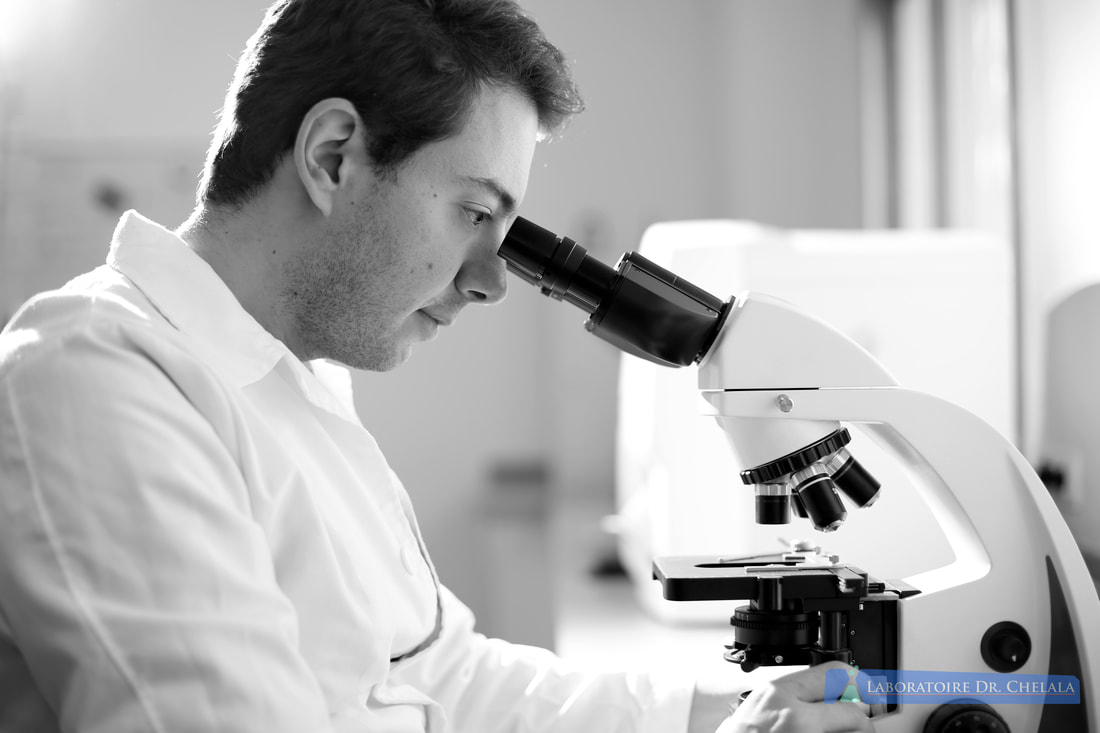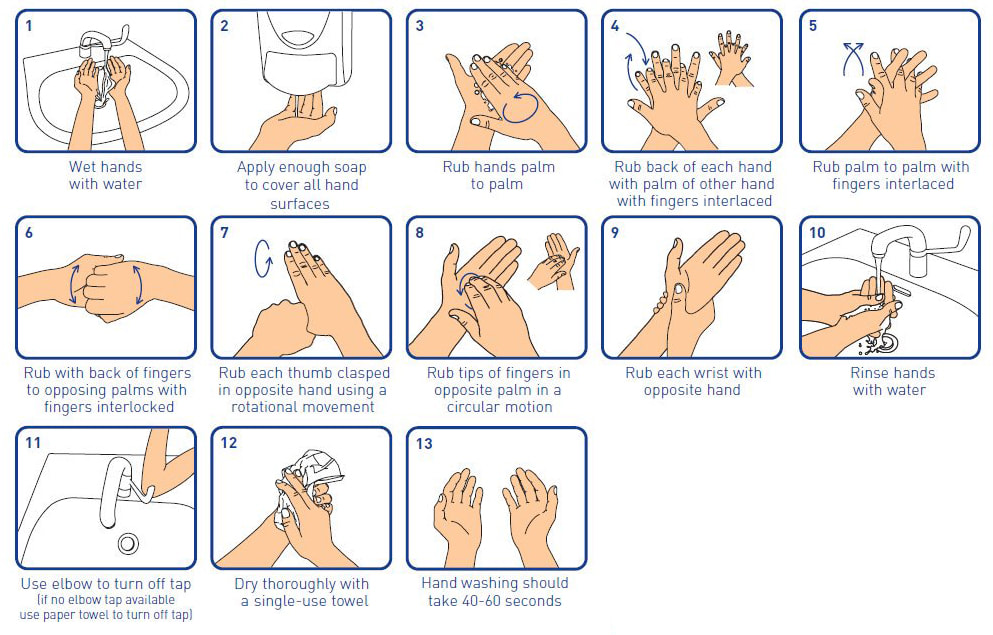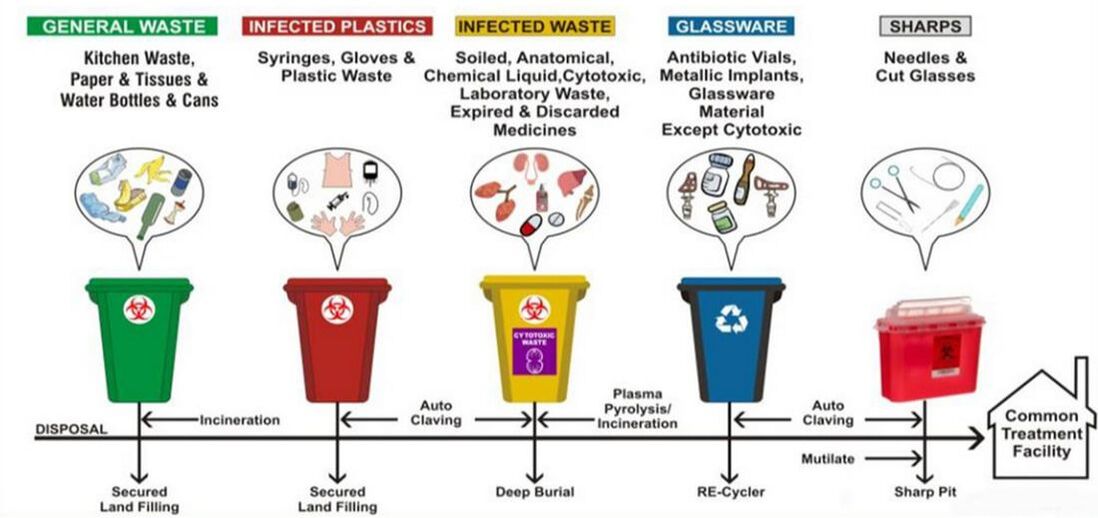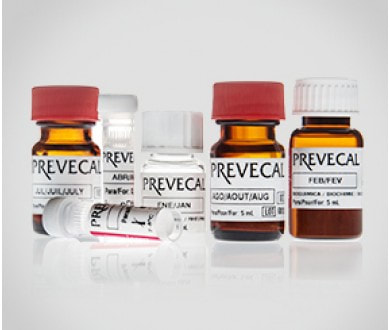The Lab
|
At Laboratoire Dr. Chelala we deal with the most required biological sectors such as hematology, microbiology, immunology, biochemistry, hormonology and molecular biology. With our well experienced and advanced team, we are dedicated to provide you with the most accurate results in a short period of time. We continuously do training sessions in order to stay up to date and use the most recent technologies provided by specialized companies such as Roche Diagnostics, Biosystems, Bio-Rad & Sebia.
Dr. Tanios Chelala wanted to have a complete formula by adding fully equipped medical clinics. With its independent team and area, we do what is best to meet our patients' expectations. We offer the possibility to see their doctor weekly nearby home and without the need to pick the test results as we automatically shift them via our internal communication system to their personal medical file. And last but not least, we also provide a home service blood sampling. All you need to do is call us 24hrs prior the required date. We will supply you with all the information concerning our laboratory, routine examinations as well as specialized and rare cases. You can also inquire about the conditions for your blood test by reading the FAQ. |
The Team
DR. TANIOS J. CHELALA - Clinical Biologist and Lab Director
PHLEBOTOMISTS & LAB TECHNICIANS:
ADMINISTRATIVE & INSURANCE TEAM:
PHLEBOTOMISTS & LAB TECHNICIANS:
- MICHELLE MIKHAEL TANNOUS
- WENDY IBRAHIM ROUKOZ
- DANIELLE NEHME MEDAWAR
- JEANNE RAPHAEL
- FADY BAKHOS
ADMINISTRATIVE & INSURANCE TEAM:
- RITA A. CHELALA
- SAMAR KANAAN
- NANCY SARKIS RKAIBY
Corporate Social Responsibility
As you know, medical laboratories are one of the main sources of healthcare waste, along with hospitals, clinics, blood banks and medical research centers. Part of this waste (around 20%) is considered as high risk to human as they are hazardous. Infectious waste includes biological fluids such as blood and urine. Gloves, compresses, bandages, tubes, sharps and needles make also part of the risky waste.
Healthcare facilities are using a growing quantity of dangerous products due to their chemical properties. Chemical solvents are mainly used in labs in order to disinfect the working area to avoid contamination between patient's biological fluids and therefore avoid wrong results. They contain halogenated compounds such as chloroform and methylene chlorude; and non-halogenated compounds such as acetone, ethanol and methanol.
Risk is also present in one of the most used area found in public spaces and buildings: SANITARY!! Staff and patients are equally exposed. It is very important to adapt high quality environmental friendly hygiene and security measures in order to minimize the risk of contamination.
Healthcare facilities are using a growing quantity of dangerous products due to their chemical properties. Chemical solvents are mainly used in labs in order to disinfect the working area to avoid contamination between patient's biological fluids and therefore avoid wrong results. They contain halogenated compounds such as chloroform and methylene chlorude; and non-halogenated compounds such as acetone, ethanol and methanol.
Risk is also present in one of the most used area found in public spaces and buildings: SANITARY!! Staff and patients are equally exposed. It is very important to adapt high quality environmental friendly hygiene and security measures in order to minimize the risk of contamination.
Our laboratory and the team are very mindful on how human behavior can affect negatively and positively our planet. Dividing medical waste and recycling are part of our daily routine and values. We also follow the regulations and international agreements provided to us by the Ministry of Public Health and the Ministry of Environment - decree 2004/13389 states: "Reduction of harmful waste, recycling, sorting and treatment of waste should apply in healthcare facilities. Sterilization should be in compliance with the specifications established by ISO 94/11134 or by alternative ways giving the same expected results as its norm.
Quality Controls
|
The international External Quality Assessment program organized by BioSystems S.A. (PREVECAL) is intended to help train specialist in the interpretation of the results because the task is subjective and requires adequate skills and experience.
The aims of quality control schemes are, in general, to provide participants with an objective assessment of their performance within their laboratories and in relation to other laboratories, to provide information on the relative performance of the available kits and methods, and to identify factors associated with good and poor performance. |

